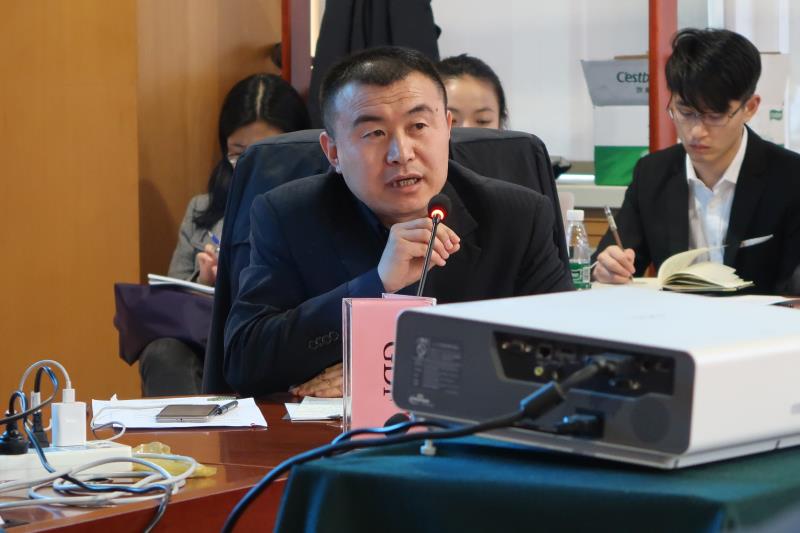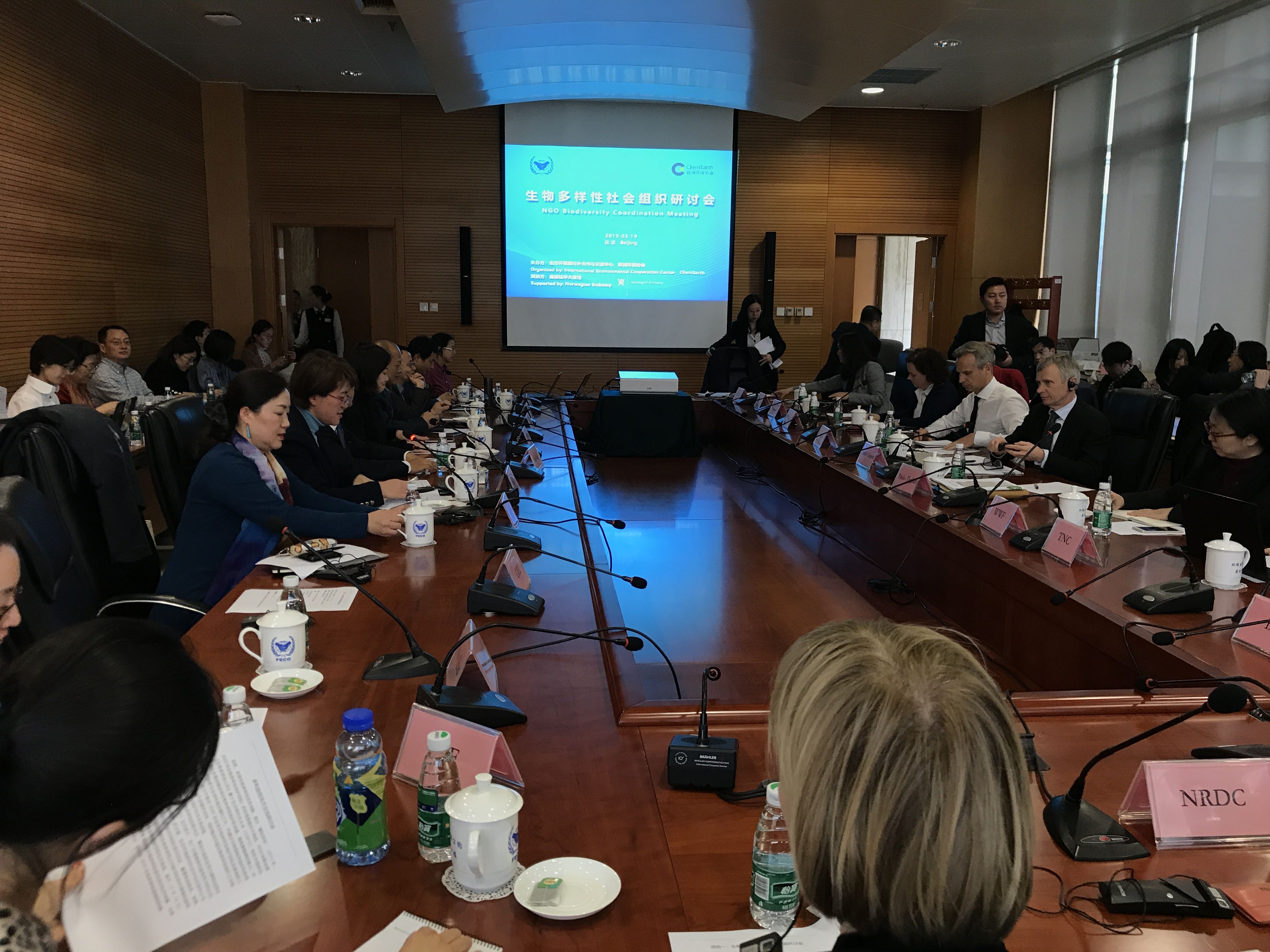The Fifteenth meeting of the Conference of the Parties of the United Nation's Convention on Biological Diversity (CBD COP15) will be held in Kunming, Yunnan Province, China in 2020. In order to support the CBD COP15, the International Environmental Cooperation Center of the Ministry of Ecology and Environment (MEE) and ClientEarth held the "NGO Biodiversity Coordination Meeting" and "Space for Nature: Multi-Stakeholder Event" two events under the theme of "Biodiversity Conservation”, and governments, academics, companies, social organizations and representative from the United Nations Convention on Biological Diversity (CBD) Secretariat and other stakeholders were invited to discuss how to promote biodiversity conservation. Ma Yong, Deputy Secretary-General of China Biodiversity Conservation and Green Development Foundation (CBCGDF), participated in the events. He introduced the work and efforts that CBCGDF has made to other participants and gave suggestions on promoting domestic biodiversity conservation. His speech is edited and shared with readers as follows.
I am honored to attend this event. China Biodiversity Conservation and Green Development Foundation (CBCGDF) is a non-governmental organization dedicated to biodiversity conservation. I am Ma Yong, the Deputy Secretary-General of CBCGDF. Today, I would like to share with you the work and efforts of CBCGDF in biodiversity conservation, and my own views about COP15. I will take about them from the five perspectives.
Firstly, awareness-raising. According to the 2011-2020 Biodiversity Conservation Targets, biodiversity conservation has not mainstreamed yet, and there is still a long way to go. Few enterprises and companies put biodiversity conservation in the first place in production and operation. Take a case in Sichuan province as an example, a hydropower company would imperil a forest of Acer pentaphyllum Diels, which is sole and only around the world and of great value, to meet its requirement of development. We wrote letters to this company several times and persuaded the policy-maker not to destroy this precious forest, but they insisted on the original project. So, we brought public welfare lawsuit against this company. This case demonstrates that most people overlook the importance of biodiversity conservation. Therefore, we place emphasis on advertising, education, and training. We specially compiled Biodiversity Conservation Handbook for officials, because we believe that as long as heads of competent authorities change the ideas, the domestic work of biodiversity conservation can be greatly promoted. We also rely on volunteers when it comes to publicity and education.
The second is to promote the publicity of information. Actually, the publicity of environmental pollution information is good. But by comparison, the publicity of biodiversity conservation information is not effective enough. We have a lawsuit being heard this afternoon in Dongcheng District. We file a lawsuit against the Department of Forestry of Guangxi Zhuang Autonomous Region and the National Forestry and Grassland Administration because of their defective information disclosure systems. So, it is essential to protect people’s right to know which serves as the foundation of biodiversity conservation. If we don’t know the current situation, then we can’t launch the conservation work effectively.
Thirdly, scientific research exchanges. The Secretary-General of CBCGDF is in the front line of scientific research communication. He has flown to several countries to attend international meetings. Scientific research plays an important role in biodiversity conservation. Take pangolin as an example, we found that the breeding of pangolin is difficult, and few cases succeed. Therefore, CBCGDF works with Xi' An Jiaotong-Liverpool University to establish China Pangolin Research Center. We hope to attract eminent scientists around the world to advance endangered wildlife protection, like the pangolin.
Next, mechanism innovation. Just as has been mentioned, China has set up a specific mechanism for biodiversity conservation, particularly establishing various protected areas, which play as a key role in biodiversity conservation. We put forward the CCAfa (China Conservation Area for something at somewhere) system to help social organizations to cooperate with the government. CCAfa aims to protect biodiversity and natural habitats organically. By 2019, 114 CCAfas have been established. We also have established 41 demonstration protected areas to promote best practices.
Last but not least, legal protection. All the publicity and scientific research mentioned before depends on the law and regulation. The reality is that laws related to biodiversity conservation remain to be enriched. When it comes to wildlife protection, we only have Law of the People's Republic of China on the Protection of Wildlife. So, we advised enacting the law on biodiversity conservation with the assistance of members and representatives of Two Session. Many countries have such laws on biodiversity conservation, such as France and Brazil. What's more, we do a lot in judicial protection on biodiversity conservation, particularly environmental lawsuits: we filed a lawsuit in Guangxi province to protect pangolins, we filed a lawsuit in Sichuan province to protect Acer pentaphyllum Diels, and we filed a lawsuit in Tianjin to protect wetlands.
We are promoting biodiversity conservation in an organic and dynamic way, and social organizations have a great chance to engage in this work. CBCGDF is looking forward to holding side events and attending summits on CBD COP15. We are ready to join hands with other NGOs and folk organizations to hold a landmark event in 2020. Thank you.



(Photo credit: CBCGDF)
Original Chinese article:
http://www.cbcgdf.org/NewsShow/4854/8142.html
By / Wang Yanqing
